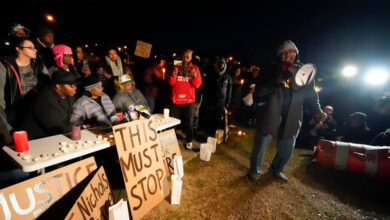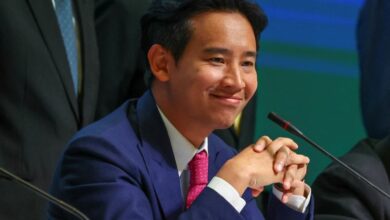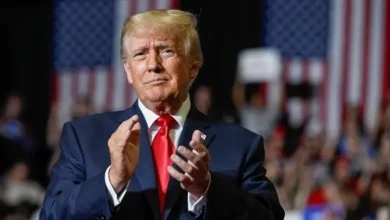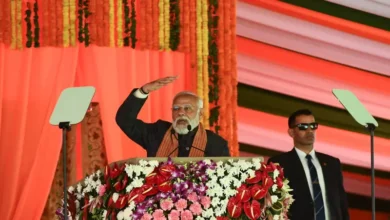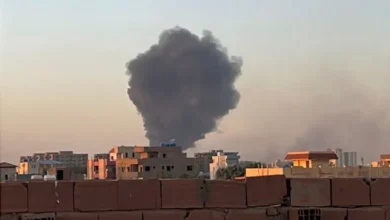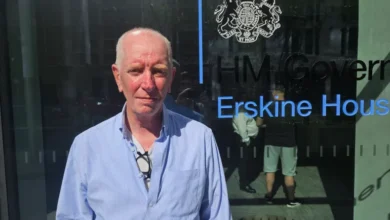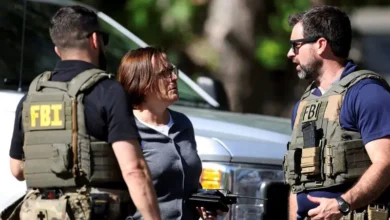Hong Kong police accuse overseas activists of serious national security offenses
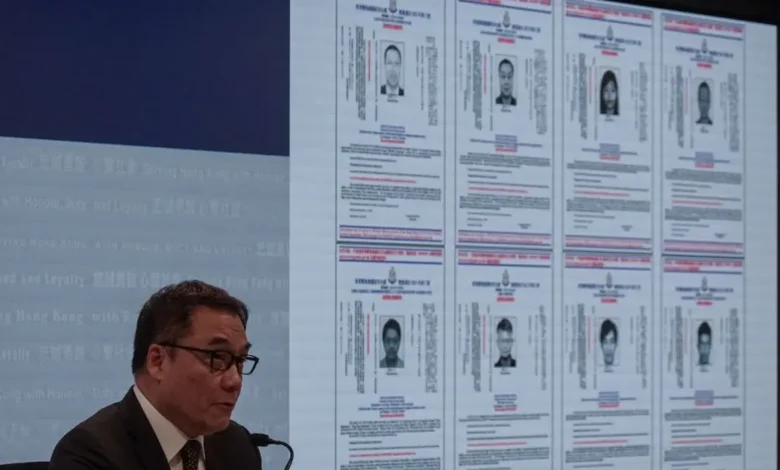
Hong Kong police on Monday accused eight overseas-based activists of serious national security offenses including foreign collusion and incitement to secession and offered rewards for information leading to any arrest.
The accused are activists Nathan Law, Anna Kwok and Finn Lau, former lawmakers Dennis Kwok and Ted Hui, lawyer and legal scholar Kevin Yam, unionist Mung Siu-tat, and online commentator Yuan Gong-yi, police told a press conference.
Issuing wanted notices and rewards of HK$1 million ($127,656) each, police said the assets of the accused would be frozen where possible and warned the public not to support them financially.
The notices accused the activists of asking foreign powers to impose sanctions on Hong Kong and China.
“They have encouraged sanctions … to destroy Hong Kong and to intimidate officials,” Steve Li, an officer with the police’s national security department, told reporters.
The activists are based in several countries, including the United States, Britain and Australia. Yam is an Australian citizen.
They are wanted under a national security law that Beijing imposed on the former British colony in 2020, after the financial hub was rocked by protracted anti-China protests the previous year.
Australian Foreign Minister Penny Wong said her government was “deeply disappointed” by reports Hong Kong authorities had issued arrest warrants for “democracy advocates including those in Australia.” Australia, she said, has consistently expressed concern about the broad application of the national security law.
The UK’s Foreign Secretary James Cleverly said, “We will not tolerate any attempts by China to intimidate and silence individuals in the UK and overseas. The UK will always defend the universal right to freedom of expression and stand up for those who are targeted.”
Some countries, including the United States, say the law has been used to suppress the city’s pro-democracy movement and it has undermined rights and freedoms guaranteed under a “one country, two systems” formula, agreed when Hong Kong returned to Chinese rule in 1997.
Chinese and Hong Kong authorities say the law has restored the stability necessary for preserving Hong Kong’s economic success.
ACTIVISTS DEFIANT
Several of the accused activists said they would not cease their Hong Kong advocacy work.
“It’s my duty … to continue to speak out against the crackdown that is going on right now, against the tyranny that is now reigning over the city that was once one of the freest in Asia,” Yam, a senior fellow with Georgetown University’s Center for Asian Law, told Reuters by telephone from Australia.
“I miss Hong Kong but as things stand, no rational person would be going back,” added Yam, who police accused of meeting foreign officials to instigate sanctions against Hong Kong officials, judges and prosecutors.
Former Democratic party lawmaker Ted Hui told Reuters the “bounty” adds to the arrest warrants already issued for him under the national security law, but “free countries will not extradite us”.
“The bounty … makes it clearer to the western democracies that China is going towards more extreme authoritarianism,” he said in Australia, where he has lived since 2021 on a bridging visa.
Anna Kwok, executive director of the Hong Kong Democracy Council, told Reuters from Washington she would not back down.
“One key thing I urge President Biden to do immediately is to say a strong and firm NO to (Hong Kong chief executive) John Lee’s possible entry into the United States for November’s APEC meeting in San Francisco,” Kwok wrote.
“He’s the man who has put a $1M HKD bounty on my head. He’s the man who has orchestrated the far-reaching transnational repression. Bar John Lee.”
Finn Lau, an activist based in London told Reuters the reward was motivated by the fact many democratic countries had suspended extradition treaties with Hong Kong.
Nathan Law, who obtained refugee status in the UK two years ago, said that people in Hong Kong should not cooperate. “We should not limit ourselves, self-censor, be intimidated, or live in fear,” he said on Twitter.
Police told the press conference 260 people had been arrested under the national security law, with 79 of them convicted of offenses including subversion and terrorism but admitted that the chances of prosecution were slim if the defendants remained abroad.
“We are definitely not putting on a political show nor disseminating fear,” Li, the police official, said.
“If they don’t return, we won’t be able to arrest them, that’s a fact,” he said. “But we won’t stop wanting them.”

